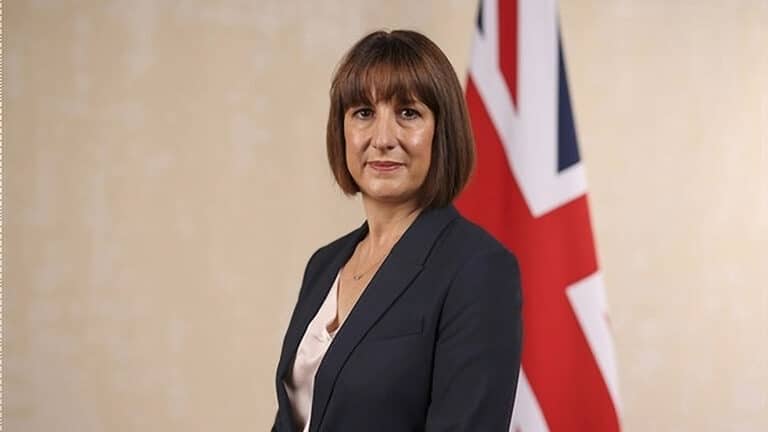There was no u-turn on the planned rises to employers’ National Insurance contributions next month in Chancellor Rachel Reeves’ Spring Statement today, which few had expected although it would doubtless have been welcomed by small and large businesses alike, and with the OBR cutting 2025 growth forecasts in half, from 2% to 1% one might be forgiven for thinking it was rather a grim day for the treasury, but there were signs of hope despite stunted growth and controversial, although already announced, welfare and foreign aid cuts.
For a start, despite its doubtful outlook for 2025, the OBR has actually upgraded its growth forecasts for every year from 2026 to 2029, meaning that, according to Reeves, the UK economy will be larger at the end of the current parliament than predicted at the Autumn Budget.
In terms of the media and digital sectors, there wasn’t too much concrete to take away from today’s “financial event,” although the tech sector can take some solace from Reeves’ promise to invest in “pioneering AI tools to modernise the state” and “investment in top technology for the Ministry of Justice to deliver probation services more effectively.”
READ MORE: Spring Statement 2025: Chancellor’s cuts risk ‘catastrophic’ blow to vulnerable, warns Northern leader
Kyle Hill, CTO of leading Manchester digital transformation company and Microsoft Services Partner of the Year ANS, was hopeful about the promise of increased AI use to bring greater efficiency to government, although he was still waiting for some of the details: “To unlock AI’s potential, the UK Government needs a clear plan for adoption and enablement. Ensuring compliance with regulations, prepping data, and training employees on responsible AI will help workers embrace AI rather than fear it,” he said. “With the right groundwork, AI can revolutionise services. Take planning permissions, for example, often slow and bogged down by backlogs of complex requests. AI can speed up decisions, helping to build more homes faster. Beyond efficiency, AI can work hand-in-hand with government workers to deliver superior, proactive citizen experiences.”
If the chancellor’s AI promises seemed to lack detail, Hill perhaps had some sympathy. The technology is, after all, so new we barely know what we’re doing with it yet: “Currently, many organisations are still in the early phases of AI adoption where they don’t fully know yet how to measure if AI is having a long-term positive benefit,” he continued. “The key to measuring success is to identify use cases which can dictate an ROI and other metrics for success. Right now, we’re seeing Generative AI have the most impact on personal productivity and decision-making. So, metrics will be centred around this and success will be recognised at a personal rather than organisational level. Operational efficiency should follow this to enable these same productivity benefits to be realised at the organisational level.
“As the Government moves forward with AI, success metrics need to align with its AI readiness journey, where safe, trustworthy, and ethical adoption take centre stage.”
Dale Walker at Cheshire based apprenticeships and coaching provider, Apprentify Group, noted that more training would be required if Reeves is to succesfully put her plans into action: “Successful implementation of AI and modernisation of outdated systems is dependent on employees being trained to handle new technologies. Without clear investment in upskilling of AI technologies, sustainable growth remains out of reach.”
“While most agree that government spending should be controlled, and the state kept efficient, true economic growth can only come from individuals and businesses. To achieve this, it is crucial to equip the workforce with the skills needed for high-paying jobs, which, in turn, boosts tax revenues. Now more than ever we are relying on skills needed to compete in the hyper competitive AI world. There is not a moment to lose.”
Another section of the tech world that may have been particularly pleased with Reeves’ speech is those involved with defence. We already knew the defence budget was in for a boost, given the unusual current transatlantic relationship, and today the chancellor promised an additional £6.4bn in defence spending by 2027, and £2.2bn in the next financial year, because she has to act quickly in a “changing world.” and make the UK a “defence industrial superpower.”
The chancellor promised that 10% of military spending will now go on “new, novel technologies,” including “drones and AI-enabled technology” which will create new jobs and contracts in our “world class defence industrial centres” – including Rosyth and Glasgow, which were singled out for special mention regionally.
Outside of the big-ticket defence and AI promises, there wasn’t too much for wider world of media and digital to take away, although in a sector dominated by freelancers, at least one commenter wasn’t pleased with the outcome: “This was not a statement for self-employed people,” asserted Mike Parkes, technical director at Manchester digital tax platform GoSimpleTax.
“Although there are still no plans to raise income tax, national insurance, and VAT rates, this won’t be enough to instil confidence in a time of uncertainty. With so much focus on the need to boost growth, now is the time for decision-makers to recognise the vital role self-employed people play in driving the economy, and the huge potential that they hold. There are more than four million people working for themselves in the UK and they deserve more targeted support to thrive, not just survive.
“Those who are self-employed but unable to work full time, and so must rely on benefits to top up their income, are going to feel uneasy about what proposed reforms to welfare mean for already tight household budgets.”
Parkes was more positive about the chancellor’s plans to tackle tax avoidance and evasion, with further investment into HMRC set to raise a predicted additional £1bn.
Another who found Reeves’ statement light on detail was Dr Charles Nimoh, macroeconomic expert at the University of Salford. He described Reeves’ moment in the spotlight as “an opportunity to present a bold economic vision,” but added that “instead, we were met with political soundbites and no real solutions.”
Nimoh added: “Her statement on ‘not taxing to spend’ may sound appealing, but without investment, how does the government plan to drive growth, create jobs or support struggling households?
“This morning’s inflation figures show a drop to 2.8%, edging closer to the Bank of England’s 2% target, but still above it. With inflation cooling, now is the time for a clear plan to stimulate growth – yet today’s statement offered none.”
Turning to the government’s welfare cuts, Nimoh noted the risk that they may be more “focused on cost-cutting than meaningful change,” and wondered where the high-paying jobs that people moving off benefits are supposed to do, the affordable homes they’ll move into, and the childcare to help them do it will come from: “Without a clear investment strategy, this isn’t a plan – it’s austerity in disguise,” he concluded. “The Chancellor says she won’t tax to spend, but the real question is: will she invest to grow?”
If an overriding theme of the statement appeared to be lack of detail, Mayor of West Yorkshire and former Corrie star Tracy Brabin perhaps had some comforting words for her Labour colleague given the utter unpredictability of the current global political stage: “The Government is getting on with its plan for change and the growth mission is rightly its top priority,” she insisted. “Global uncertainty has made this task more difficult, and we must now double down on our efforts to boost living standards and support public services.”













